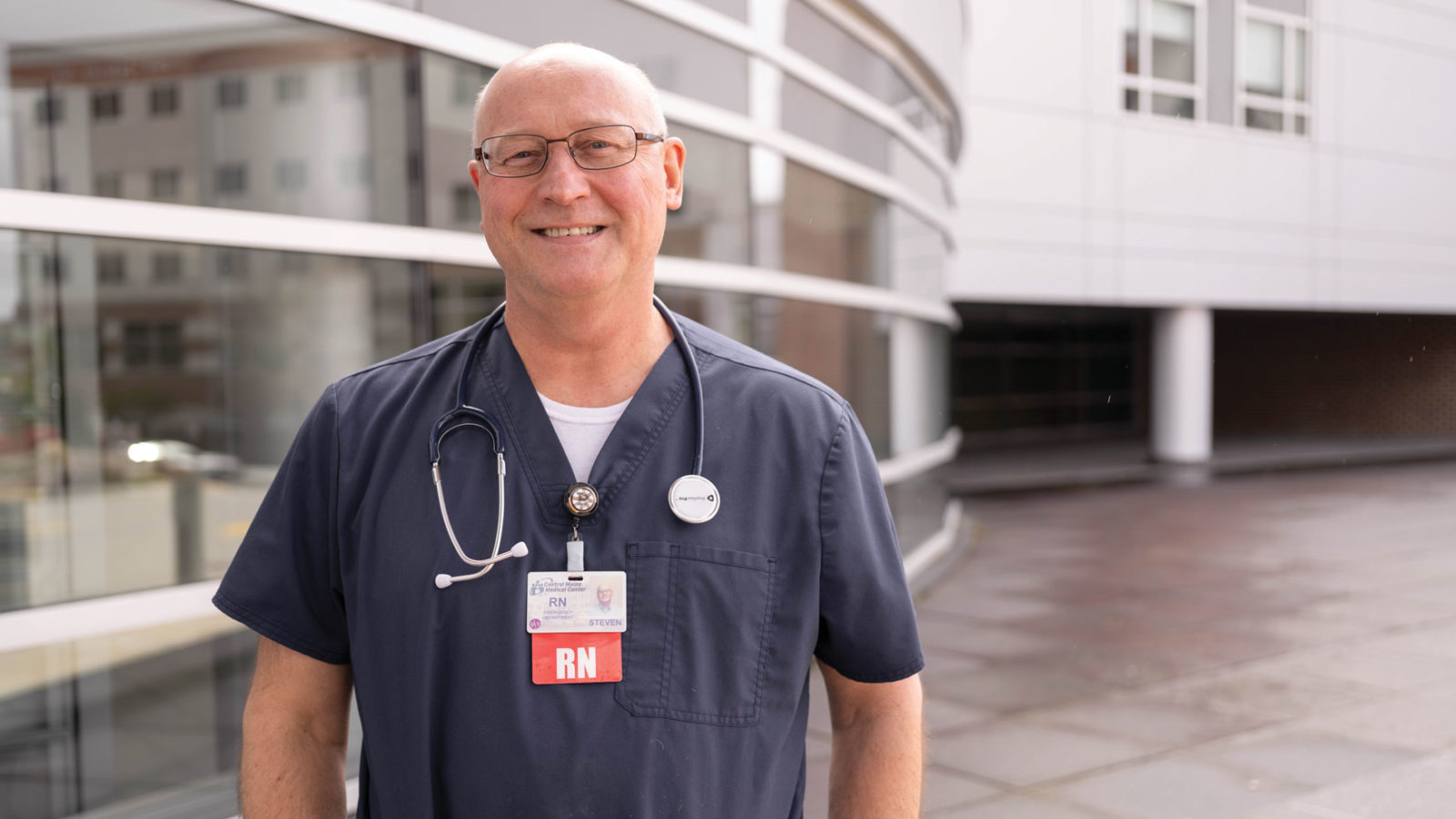J. Steven Staggs ’78 discusses his extraordinary professional pivot from investment advisor to emergency department nurse
Don’t try to make former investment advisor J. Steven Staggs ’78 tell you a story about how the financial crisis of 2008 was the best thing that ever happened to him. Because, although it precipitated a sequence of events that radically changed his life, he had loved finance. “I so enjoyed the investment business and I got to meet so many interesting people and travel all over the world and do frankly significant things from an economic perspective.”
“But,” he jokes, “I was looking for a less stressful job.” So he became an emergency department nurse specializing in triage.
But let’s back up. Because, before any of this, there was Williston, which Staggs, who grew up in Wilbraham, Massachusetts, calls “the best four years of my life.” “There was a level of diversity of personalities and backgrounds that I had never experienced before,” he explains, “and it provided me with skills in adaptability and flexibility.” Did he study as much as he possibly could? He did not. But when he went on to North Carolina State University in Raleigh, did he rigorously apply himself to his schoolwork then? Again, no. After a year, though, Staggs transferred to Springfield College, where his talents crystalized into a B.S. in business management. From there he went on to Babson College for a master’s degree in finance and accounting. A series of increasingly high-powered jobs in investments, including private placement lending, structured credit, asset-backed securities, and collateralized debt obligations, took Staggs from Springfield, Massachusetts, to Chattanooga, Tennessee, to Fort Wayne, Indiana, and then back to Springfield again. “I very much thought I would retire from the business,” he says of that time. “I thought that would be my whole career.”
It would not be. After the financial crisis and the subsequent elimination of his job at MassMutual, Staggs spent a couple of years working with another Williston alum, a trustee, to start up an investment advisory firm. But the investment world was still debilitated by caution, and Staggs started thinking about alternatives. “I wanted something that was more rewarding personally. And something where I had a more immediate impact on the lives of individuals.” Health care ticked these boxes—and Staggs, second-guessing finance, had already begun taking some science prerequisites while he was still with the investment venture. After briefly considering medical school (before concluding that it would be time to retire before he’d really even started his career), Staggs took a job as a certified nursing assistant in a rehab center to feel out his aptitude for the work. Convinced, he applied to the two-year nursing program at Springfield Technical Community College and, despite its relatively low acceptance rate, was admitted. He was 50 years old.
While still in school, Staggs secured an elite internship in the emergency department of Baystate Medical Center, which, with 91 beds and a eight-bed psych unit, is one of the busiest EDs in all of Massachusetts. “The experience was fantastic,” he says. In an emergency department, “every day is a learning experience. Every day presents you with challenges. There’s a bit of an adrenaline rush that you get from the pace and the uncertainty of who’s going to be wheeled through the door next.” The work was tremendously, thrillingly rewarding. He was hooked.
Eventually the state of Maine beckoned. Staggs already owned a cottage on a lake there, and, after the hustle and bustle of city life, he was attracted to the good fishing and the idyllic rural landscape. He applied to the emergency department at Central Maine Medical Center, where he’s worked as an RN for the past five and a half eventful years. Over the course of a 12-hour shift, Staggs triages between 30 and 50 patients. “And they range from people coming in with runny noses to overdoses that were abandoned at the front door, to traumas and life-threatening cardiac conditions. It really runs the gamut—and it challenges your decision-making ability.” He finds that health care triage has much in common with investment analysis: “You’re taking initial information and evaluating it, and then you’re making a decision about interventions. The ultimate goals may be different, but the way you make decisions is very much the same.”
But isn’t nursing so much more rewarding? Staggs has mixed feelings. “The rewards are more immediate and tangible,” he says. “But so are the challenges and the regrets. It often takes several months or years to figure out if your investment decision was a good one, whereas in some cases you know within minutes whether the interventions that you have performed in health care are going to be successful. The impact of not succeeding in health care is much more immediate and has a greater emotional impact.” For now, Staggs is happy working intense, concentrated hours that leave him time to spend with his wife, Margaret, and their two dogs, Mindy and Mia. Life is good. And there’s even talk of moving to a nearby boarding school, where Margaret works as a nurse. “Living on a prep-school campus!” Staggs laughs. “Now I’m really coming full circle.”

